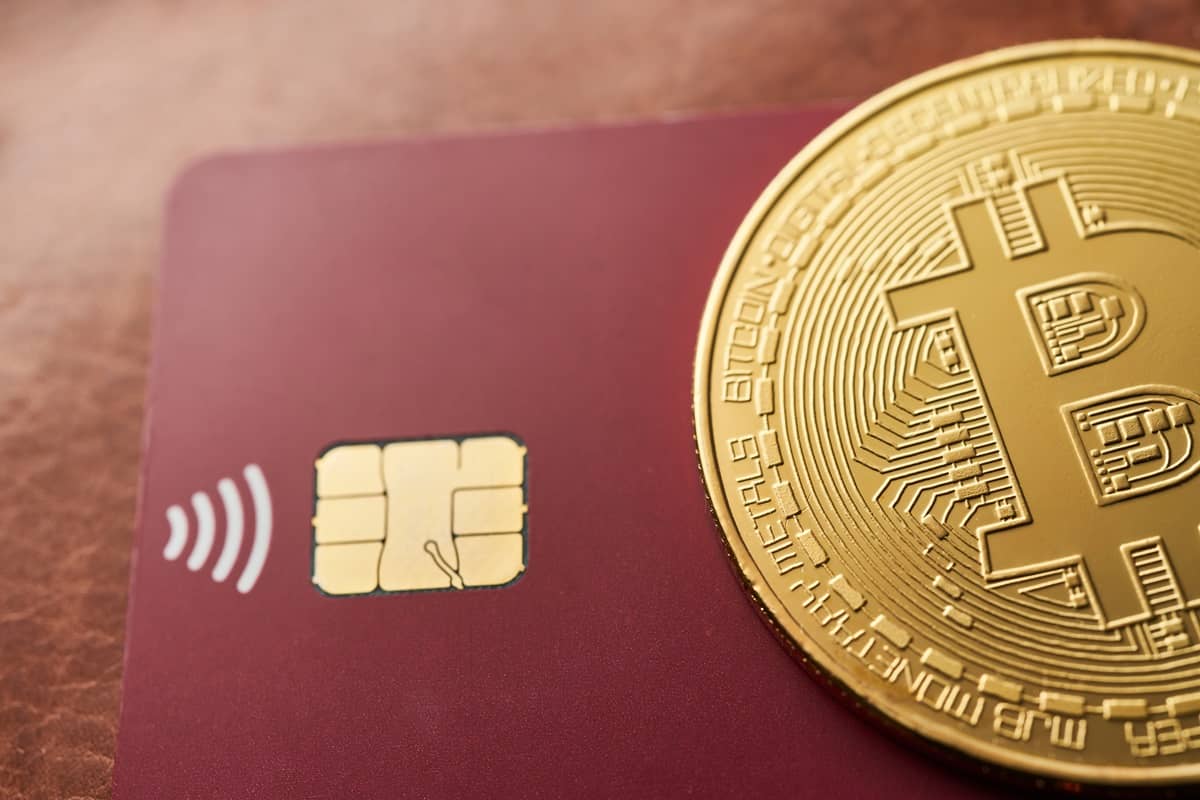
You're likely no stranger to the buzz around cryptocurrencies. With a continuously growing and rapidly changing market, these new age investments have begun to carve their very own niche. Have you ever wondered about the intersection of traditional financial investment mechanisms and cryptocurrencies? Well, that's where Cryptocurrency Exchange-Traded Funds, or crypto ETFs, come into the picture. This financial innovation has the potential to reshape the landscape of these two different markets, bridging the gap between traditional finance and the digital asset world.
An Exchange-Traded Fund (ETF), by definition, is a type of investment fund and exchange-traded product that holds assets such as stocks, bonds or commodities. ETFs are designed to track the performance of a specific index or commodity. They are traded on stock exchanges, similar to individual stocks. So, what happens when this concept crosses paths with the world of cryptocurrencies? You get a Cryptocurrency ETF, a modern financial tool that paves the way for a whole new set of investment opportunities.
In this article, you'll delve into the intriguing world of Cryptocurrency ETFs. You'll understand their basic structure, how they work, and their underpinning technology – the blockchain. You'll also find out the benefits and potential risks, the different types of Cryptocurrency ETFs available, and how to consider the right one for your investment portfolio. Not to mention, you will discover valuable tips for investing in this exciting field with confidence and assurance.
Understanding the Basics of ETFs
Exchange-Traded Funds, commonly known as ETFs, are investment funds that are traded on stock exchanges, akin to individual stocks. Designed to track the performance of a specific index, sector, commodity, or asset, they serve as a medium for investors to gain exposure to a wide range of assets, without needing to buy each individual security.
An ETF is essentially a basket of securities that you can buy or sell through a brokerage firm on a stock exchange. It's important to note that as an investor, you don’t directly own the underlying assets inside the fund, rather, you own a piece of the ETF itself. In other words, when you buy shares in an ETF, you're buying shares of a portfolio that tracks a specific index.
There are a variety of different ETFs available today. This includes index ETFs, stock ETFs, sector and industry ETFs, commodity ETFs, bond ETFs, and now, Cryptocurrency ETFs. Each type offers a unique set of benefits, passive management being the common advantage. In contrast to mutual funds, which have their net asset value (NAV) calculated at the end of each trading day, ETFs' prices change throughout the day, similar to any other publicly traded securities.
ETFs are generally praised for their versatility. They provide a low-cost way for retail investors to replicate the performance of various indices; they offer diversification, as most ETFs track a particular index, and thus spread out the risk. Flexibility is another strong point, as they can be bought and sold like shares on an exchange at any time during market hours.
Now that you have a firm understanding of what constitutes an ETF, it's time to delve into the nascent but promising world of Cryptocurrency Exchange-Traded Funds.
The Concept of Cryptocurrency Exchange-Traded Funds
The term Cryptocurrency Exchange-Traded Funds (ETFs), a relatively recent entrant in the financial world, may bring about a certain sense of bewilderment. But once the concept is demystified, you'll discover it's a fascinating fusion of traditional financial instruments and cutting-edge digital assets. So, what does it entail?
As you might already know, an Exchange-Traded Fund is an investment vehicle that tracks an index, sector, commodity, or asset. Similar to regular ETFs, Cryptocurrency ETFs allow you to invest in a diversified collection of cryptocurrencies, without individually buying, storing, or managing them.
Here's how it works in a nutshell: instead of directly purchasing the cryptocurrencies, you buy shares in the ETF. The ETF provider, typically a financial institution, holds the actual cryptocurrencies and divides the ownership of these assets into shares. Consequently, the performance of a Cryptocurrency ETF mirrors the performance of the cryptocurrencies it has in its portfolio. If the values of the cryptocurrencies in the ETF rise, so does the value of the ETF, and vice versa.
One of the primary reasons behind the inception of Cryptocurrency ETFs is to bridge the gap between the conventional financial markets and the burgeoning world of cryptocurrencies. This brings cryptocurrencies into a regulated environment, provides additional investor protections, and integrates them more seamlessly into the portfolios of traditional investors. Additionally, instead of having to navigate cryptocurrency wallets, security keys, and blockchain technology, investors can buy and sell Cryptocurrency ETFs on traditional exchanges, just like stocks.
Has the lightbulb illuminated, highlighting the transformative potential of Cryptocurrency ETFs? The allure of these ETFs is truly their potential to democratize the landscape of cryptocurrency investment, paving the way for its broader acceptance among everyday investors. However, let's not forget the other side of the coin: investing in Cryptocurrency ETFs comes coupled with the same inherent risks as the direct purchase of these notoriously volatile digital assets. But doesn't this volatility inject a thrilling dose of exhilaration into the entire process?
Benefits of Investing in Cryptocurrency ETFs
When you consider investing in Cryptocurrency Exchange-Traded Funds (ETFs), a range of benefits come to light. These advantages make them an attractive investment option, especially for those with an interest in digital currencies. Let's delve into the potential benefits, shall we?
Liquidity and Accessibility
Cryptocurrency ETFs offer a high level of liquidity, functioning much like traditional stock market trading. The ability to buy or sell ETF shares throughout the trading day is a significant benefit, unlike mutual funds that only allow end-of-day transactions. This means you can respond swiftly to market fluctuations, taking advantage of opportunities as they arise. Moreover, ETFs provide a platform for those unfamiliar with direct cryptocurrency dealings to enter the market space.
Diversification
ETFs generally consist of a broad range of assets, which enhances diversification potential. The wide coverage reduces risk compared to investing directly in single cryptocurrencies. Accordingly, potential losses from underperforming crypto assets can be offset by gains from others. You're putting your eggs in several baskets, aren't you?
Regulation
While many aspects of the cryptocurrency market remain unregulated, Cryptocurrency ETFs are generally subjected to regulations similar to traditional ETFs. This increased regulation provides an additional level of security for investors, reducing the risk of fraudulent activities that can plague less regulated sectors of the crypto market.
Reduced Need for Technical Knowledge
Investing directly in cryptocurrencies often requires sound technical knowledge about blockchain technology and the use of digital wallets. However, investing in Cryptocurrency ETFs circumvents this need. It allows you to participate in the cryptocurrency market without having to understand the technical aspects. Keeps things simpler, doesn't it?
Lower Costs
Investing in Cryptocurrency ETFs can often have lower fees than managing a diverse portfolio of individual cryptocurrencies. By pooling assets in a single fund, administrative expenses can be spread over a larger capital base, thereby reducing costs per investor.
In conclusion, Cryptocurrency ETFs extend benefits such as improved accessibility, diversification of risk, regulatory secureness, reduced technical expertise requirement, and lower costs. These perks make them a compelling option for both seasoned and novice investors, interested in cryptocurrency investments. Are you ready to reap these benefits with Cryptocurrency ETFs?
Different Types of Cryptocurrency ETFs
As the cryptocurrency market evolves, so does the variety of Exchange-Traded Funds (ETFs) associated with it. While all ETFs share the common characteristic of tracking the performance of an underlying index, sector, commodity, or asset, the nuances among different types of cryptocurrency ETFs are substantial and worthy of your attention. Let's take a closer look.
Bitcoin ETFs
The most widely recognized type of cryptocurrency ETF is the Bitcoin ETF. As the name suggests, these ETFs track the price of Bitcoin, the leading digital currency. Investing in a Bitcoin ETF allows you to participate in Bitcoin's price movements without having to own or store Bitcoin itself — a significant benefit for those apprehensive about the technicalities of cryptocurrency storage or the vulnerabilities associated with digital asset wallets.
Ethereum ETFs
Another notable type of cryptocurrency ETF on the market is the Ethereum ETF. Ethereum, the blockchain platform famous for introducing smart contracts and enabling decentralization, has its associated currency, Ether. An Ethereum ETF gives investors exposure to Ether's price action without direct ownership or storage concerns, similar to Bitcoin ETFs.
Cryptocurrency Index ETFs
Further, you may encounter Cryptocurrency Index ETFs, which track a diversified basket of cryptocurrencies rather than a single digital asset. These ETFs are designed to replicate the performance of cryptocurrency indices, providing a broad exposure to the cryptocurrency market. If you're interested in diversification within the high-volatility realm of cryptocurrencies, index ETFs may suit your investment objectives.
Blockchain ETFs
Interestingly, not all ETFs around cryptocurrency focus on digital currencies per se. Some, like Blockchain ETFs, concentrate on the performance of companies that are involved in the development and utilization of blockchain technology – the underpinning framework of every cryptocurrency. Blockchain ETFs provide a unique way to invest in the growth and applications of blockchain technology, indirectly benefiting from the adoption and rise of cryptocurrencies.
In conclusion, the type of cryptocurrency ETF you may consider largely depends on your risk appetite, investment goals, and the specific aspects of the cryptocurrency world you wish to be exposed to. Therefore, you must carefully evaluate the purpose and underlying assets of each ETF type before deciding which caters to your investment design.
How to Choose the Right Cryptocurrency ETF for You
Choosing the right cryptocurrency ETF for you can be a daunting task, given the rapid emergence and evolution of this market sector. While there isn't a definitive playbook to choosing the right Cryptocurrency Exchange-Traded Funds (ETF), a couple of considerations can guide you in selecting the one that fits your investment goals and risk tolerance. Here are some key factors you should consider.
Your Investment Goals
The first step in choosing the right cryptocurrency ETF for you is understanding what your investment goals are. Are you seeking short-term gains, or are you more interested in long-term investments? Identifying your financial goals will help dictate which ETFs may be suitable for you.
Investment Horizon and Risk Tolerance
Your investment horizon and risk tolerance are critical considerations when deciding on the perfect ETF. Given the high volatility of cryptocurrencies, you must be prepared for drastic price swings. For investors with a shorter investment horizon or a low tolerance for risk, more traditional ETFs may prove to be a safer bet.
Fees and Expenses
An often overlooked but critical element in choosing an ETF is the associated fees and expenses. While ETFs typically come with lower fees than actively managed funds, those fees can still add up, especially for long-term investments. So, make sure to look at the expense ratio, which represents the total annual operating expenses of the fund, expressed as a percentage of the fund's average net assets.
Diversification
One of the benefits of ETFs is the opportunity for diversification. But not all crypto ETFs offer the same level of diversification. Some ETFs may focus on one type of cryptocurrency, while others may offer exposure to a range of digital assets. Depending on your risk tolerance and investment goals, one may be more suitable than the others.
In conclusion, the selection of a suitable cryptocurrency ETF should be a reasoned decision, one that involves a detailed understanding of your financial objectives, risk tolerance, the fees involved, and the level of diversification you seek. Remember, understanding your investment and doing your homework is always crucial to successful investing.
The Role of Blockchain Technology in ETFs
Blockchain technology, the underlying technology for cryptocurrencies, plays an instrumental role in the structuring and functioning of Cryptocurrency Exchange-Traded Funds (ETFs). The feature-rich technology brings to table innovative solutions that redefine the dynamics of investment in cryptocurrency assets. But, how exactly does blockchain contribute to the efficacy and stability of ETFs? Let's explore.
Improved Transparency and Trust
Blockchain is fundamentally a decentralized ledger that records all transactions made across its network. It means that with blockchain-based ETFs, every transaction of the fund, from who bought it to the number of shares sold, can be open to the public. This enhanced transparency fosters trust among investors who can independently verify the operations without any centralized authority.
Instantaneous and Efficient Operations
Thanks to smart contracts, a core aspect of blockchain, operations like buying and selling of ETF shares can be programmed to minimize manual intervention and delays. Smart contracts automate processes upon fulfilling set criteria, thereby enhancing the efficiency and speed of transactions.
Verifiable Ownership
Blockchain’s inherent immutability ensures that once an ETF share is sold, the transaction can’t be modified or removed. This feature offers verifiable ownership to the investor, safeguarding their shares from any potential fraud or misconduct.
Cost Reduction
Lastly, by automating most of its operation via smart contracts, the reliance on middlemen or administrative bodies can be drastically reduced. This operational shift not only optimizes the processing speed but also cuts down on the expenses associated with conducting, verifying, and recording the transactions.
There is no doubt that blockchain technology, with its decentralization, transparency, and immutability, stands to revolutionize the world of ETFs, making them more efficient, secure, and open. As the interest in cryptocurrency continues to surge, the importance of understanding the role of blockchain in cryptocurrency ETFs becomes even more critical for prospective investors.
Tips for Successful Investing in Cryptocurrency ETFs
Investing in Cryptocurrency ETFs requires taking a measured approach, just as you would with any investment strategy. The following tips can help guide a successful experience with this innovative financial product.
1. Understanding the Market
As an investor, you must thoroughly comprehend the fundamentals of both cryptocurrencies and ETFs. This includes how these digital assets are valued, the factors that influence price movements, and how ETFs are structured and traded.
2. Researching Investment Options
Investors should spend considerable time investigating different types of cryptocurrency ETFs. These may focus on one digital currency like Bitcoin or Ethereum, or diversify across several currencies or even the broader blockchain technology. Each option has its risks and rewards based on market dynamics and the underlying asset's performance.
3. Evaluating Market Trends
Successful investors stay cognizant of broader market trends and financial news that could affect cryptocurrency values and ETF prices. This involves monitoring financial news, understanding global market conditions, and staying abreast of regulatory developments that may impact digital currencies.
4. Assessing Risk Tolerance
Investing in cryptocurrency ETFs, like all investments, involves a degree of risk. It is crucial to evaluate your personal risk tolerance and make sure it aligns with the volatility inherent in the cryptocurrency market. This assessment will guide your decisions on how much to invest and which cryptocurrency ETFs are the best fit.
5. Diversifying Your Portfolio
As the saying goes, don't put all your eggs in one basket. Diversification remains a sound financial strategy, and this holds true when investing in cryptocurrency ETFs. It's wise to balance higher-risk cryptocurrency ETFs with more stable assets to buffer your investments from dramatic market swings.
6. Regularly Reviewing and Adjusting Your Portfolio
Regular portfolio reviews and adjustments are vital to keep pace with the rapidly evolving cryptocurrency market. Staying proactive and flexible can help you respond to market fluctuations and optimize your portfolio performance over time.
Investing constructively in crypto ETFs requires diligence, patience, and a systematic approach. By adhering to these tips, you can amplify your success in navigating this exciting sector of the finance world.
Conclusion: Exploring the Exciting World of Cryptocurrency ETFs
In wrapping up, the captivating world of cryptocurrency ETFs offers a plethora of opportunities for investors who are looking to diversify their portfolio and capitalize on the innovative technology behind digital currencies. There is no denying that digital currencies, particularly ETFs, are changing the investing landscape. These financial instruments layer a new level of diversity and sophistication within an already intricate sector.
What's inevitably clear is that cryptocurrency ETFs can serve as a gateway to the broader cryptocurrency market, providing you with exposure without some of the risks associated with directly handling or storing digital assets. However, like every other investment option, they come with their own set of challenges and risks. It's crucial to thoroughly comprehend what you're putting your money into, and in this case, understanding the dynamics of both the ETF industry and the volatile cryptocurrency space.
As you delve deeper into your investment journey, remember to remain meticulous with your research, particularly when selecting individual cryptocurrency ETFs. Consider your investment objectives, risk tolerance, and the specific type of ETF that aligns with your strategy. Also, be aware of the fees and the level of diversification they offer.
With the continued evolution and maturity of blockchain technology, the associated industries, and regulatory landscapes globally, we can anticipate a wide array of developments in the realm of cryptocurrency ETFs. The excitement derived from these financial instruments certainly comes with a set of investment considerations and decisions that you will have to make. But blending conventional investment wisdom with a sound understanding of this disruptive technology can ensure you navigate this sophisticated landscape with confidence and ease.
Indeed, the exciting world of cryptocurrency ETFs is a testament to the provocatively fascinating era of digital investments we are living in. It is more than just a trend; it's a dynamic revolution reshaping the contours of the investment world. As you embark on this journey, equip yourself with knowledge, stay resilient, and make informed investment decisions that align with your aspirations. The world of cryptocurrency ETFs might just be the next big thing in your investment portfolio.



